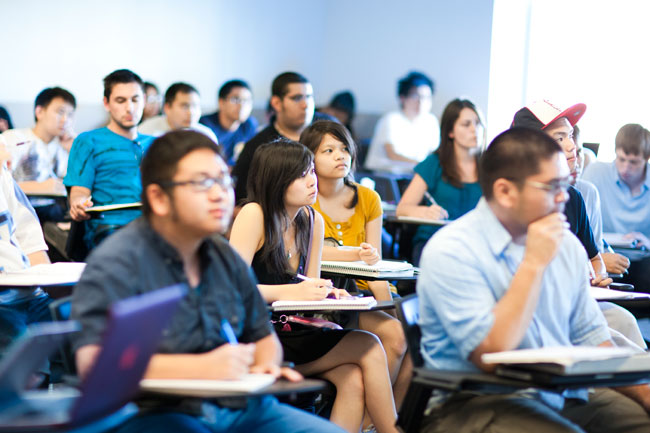
Educational Philosophy
Our educational philosophy can be captured by the following principles which guide the way that the School of Social Sciences, Humanities and Arts constructs a learning foundation for our students:
Doing is the basis for learning. Students are encouraged to create the forms they are studying—whether they are plays, maps, persuasive essays or social surveys. We believe that developing writing skills leads to critical reading; being an articulate speaker leads to becoming a better listener; and developing models of decision-making from a holistic multidisciplinary perspective leads to a better appreciation of how policy is developed. We invite students to participate in the research programs of our faculty, to create student-led teams and to embark on individual, mentored research projects. Through their research, students learn to evaluate and use evidence and construct persuasive arguments based upon actual events and previous experience.
Learning is ubiquitous. Some of the best learning occurs outside of the classroom around peers and in communities. Diverse learning environments allow students to make connections between books and the world. Human beings are natural learners, and our job as educators is to provide an environment where students can engage these natural instincts. Courses are the anchors, but a lot of exciting learning depends upon students’ own discovery of the links between formal academic programs and other endeavors such as foreign travel, artistic performance, political or business internship or community service.
Citizenship is founded in community. When we develop an informed and critical engagement with our own community, we can make better sense of what is happening there, and we can begin to see how our home is related to the globe. We live in a world where we are globally interdependent. Political borders, which change over time, determine citizenship and affect life opportunities. Ideas, diseases, languages, goods and individuals have always moved around the region and the world, but they do not reach all destinations with equal ease; they do not have equivalent effects when they alight in different places; and they are transformed by their new environments. We envision our community of students as developing a zone of comfort that allows them to act simultaneously as local and global citizens.
As a new campus, UC Merced has the singular opportunity to foster an integrative environment that draws from these disciplinary research traditions, but is not limited by their boundaries. The School of Social Sciences, Humanities and Arts offers a broad range of undergraduate and graduate programs dedicated to preparing students for varied roles as responsible and thoughtful citizens and leaders. We offer research and academic programs in anthropology, the arts, cognitive science, economics, English, foreign languages, history, management, philosophy, political science, public health, psychology, sociology, world heritage and writing that:
- prepare students for meaningful careers and professions;
- encourage intellectual and moral growth;
- promote sound decision-making;
- instill the values of lifelong learning; and
- encourage civic responsibility, public service, and understanding in a diverse, global society.
Students have the opportunity to follow personal paths of discovery in disciplinary or interdisciplinary curricula, while at the same time gaining depth and expertise in methodological domains such as social statistics, historiography, Geographic Information Systems, economics, cultural analysis and cognitive science.
Culture, society, and artistic expression differ widely on the basis of their historical era and geographical location. Individuals and their cultures are affected by diverse natural environments, the questions we ask about ourselves and the world, the changing ways in which the world has been measured and envisioned, and the legacies of contacts, migrations or isolation. As students learn to understand the ways that time and place have shaped lives, institutions and works of the imagination, they develop perspectives that enable them to better understand and shape our futures.
This information can also be found at: https://catalog.ucmerced.edu/content.php?catoid=7&navoid=608
Last Updated: January 2018
Questions: Please contact Christine Howe.



